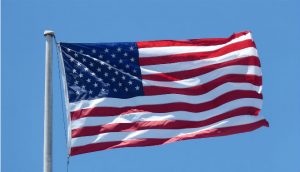 A friend of mine told me a few months ago what he expected the headlines would read the day after the presidential election.
A friend of mine told me a few months ago what he expected the headlines would read the day after the presidential election.
“Lucifer beats Satan.”
His point, of course, was that the idea of the USA being a free nation under God has never been pushed further off the political stage.
There was no pretense, no hint in this election, about the ideal of America aspiring to be a “shining city on a hill,” the phrase of Christian pilgrim John Winthrop, often referred to by President Reagan. If the discourse of this election reflects what is happening in our nation, we have lost touch with our principles and ideals.
In his farewell speech, Reagan described his vision of that “shining city.”
It is a “tall, proud city built on rocks stronger than the oceans, windswept, God-blessed, and teeming with people of all kinds, living in harmony and peace; a city with free ports that hummed with commerce and creativity. And if there had to be city walls, the walls had doors and the doors were open to anyone with the will and heart to get here.”
Or, in the words of George Washington in his farewell address to the nation, “Of all the dispositions and habits which lead to political prosperity, religion and morality are indispensable supports … reason and experience both forbid us to expect that national morality can prevail in exclusion of religious principle.”
Whereas we once thought of freedom as personal responsibility, we’ve just gone through a whole election cycle without this idea seeing the light of day.
The whole debate has been about whom to blame for our problems and what politician will solve them for us.
This certainly is not my idea of America.
The idea of our free country that captured my attention years ago was about principles, where government is about protecting life, liberty, and property. It is about a society of law, guaranteeing personal freedom that starts with the Bible.
The late Emory University law professor Harold J. Berman reminisced, in his writings, about the America where he grew up saying, “if you had asked Americans where our system of law came from, on what it was ultimately based, the overwhelming majority would have said, “The Ten Commandments,” or “the Bible,” or perhaps “the law of God.”
“In the past two generations,” Berman wrote back in the 1970s, “the public philosophy of America has shifted radically to a secular theory of law, from a moral to a political or instrumental theory … Law is now generally considered…to be simply a pragmatic device for accomplishing specific political, economic, and social objectives.”
Court decisions and public policy have methodically put this secular, humanist view into place over the last 75 years. We’ve taken prayer out of school and the Ten Commandments out of public spaces, legalized abortion on demand and redefined marriage.
The result is a nation run by judges and politicians with diminishing personal freedom and responsibility. Our economy is growing at sclerotic rates bogged down by huge debt to finance all the public programs enacted to supposedly make our society fairer and by tens of thousands of pages of regulations that pretend to make our society more just.
We’ve destroyed more than 58 million of our infants since the Roe v. Wade decision in 1973, today half our babies are born to unwed mothers, and 50 percent of American adults are married compared to 75 percent half a century ago.
There is a deep feeling in America that something is wrong. In the latest Gallup poll, only 28 percent expressed satisfaction with the direction of the country.
This feeling of dissatisfaction is our conscience speaking. It is time to turn away from political answers and toward the God who, according to our Bible, gave us our freedom.
COPYRIGHT 2016 STAR PARKER
DISTRIBUTED BY CREATORS.COM
 Star Parker is the founder and president of the Center for Urban Renewal and Education. Contact her at www.urbancure.org.
Star Parker is the founder and president of the Center for Urban Renewal and Education. Contact her at www.urbancure.org.
 CURE News and Clergy Blog News and Commentary for Christians
CURE News and Clergy Blog News and Commentary for Christians



